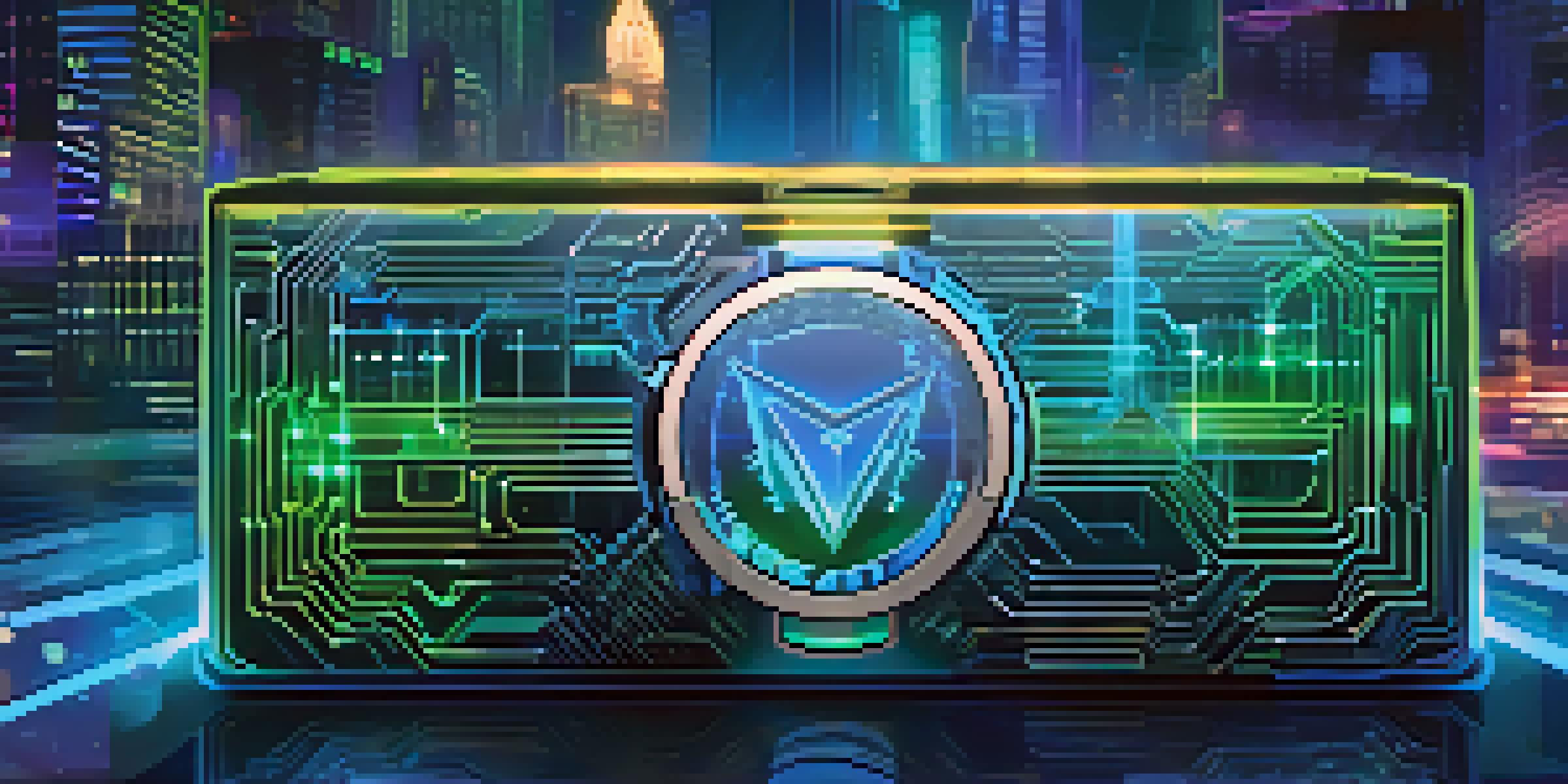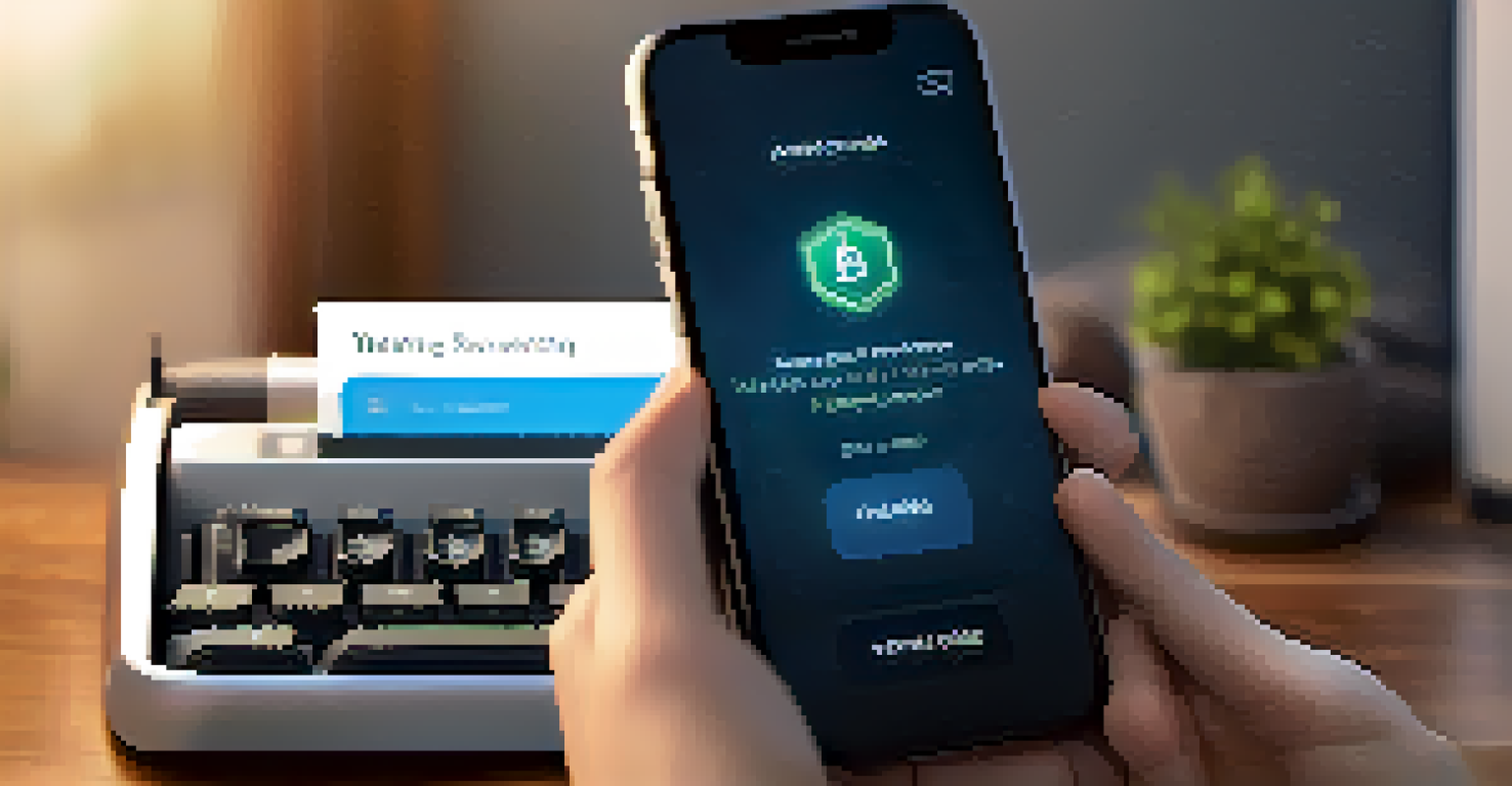The Importance of Regularly Auditing Your Crypto Security

Understanding Crypto Security and Its Importance
In the ever-evolving world of cryptocurrency, security is paramount. Just like you wouldn't leave your front door wide open, the same goes for your digital assets. With the rise of cyber threats, understanding crypto security is the first step in safeguarding your investments.
Security is not a product, but a process.
Many people dive into cryptocurrency without fully grasping the risks involved. This lack of awareness can lead to devastating financial losses. Therefore, taking the time to understand the basics of crypto security can significantly reduce your vulnerability.
Moreover, as new security threats emerge, our understanding of how to protect ourselves must evolve. Regularly educating yourself about these risks can empower you to make informed decisions, enhancing your overall security posture.
The Risks of Neglecting Security Audits
Neglecting regular security audits can be likened to ignoring a check engine light in your car. Just as that light could indicate a serious problem, your crypto wallet could be at risk without proper audits. This oversight can lead to breaches that might deplete your digital assets in seconds.

Many high-profile hacks and breaches stem from a lack of routine security assessments. For example, several exchanges have suffered attacks due to outdated security measures. These incidents serve as stark reminders of why vigilance is crucial in the crypto space.
Crypto Security is Crucial
Understanding and prioritizing crypto security is essential to protect your investments from cyber threats.
Ultimately, failing to audit your security can result in lost funds, compromised personal information, and irreparable damage to your reputation in the crypto community. Regular audits are your best defense against these potential disasters.
Setting a Regular Audit Schedule
Creating a regular schedule for security audits is essential to maintaining your crypto safety. Think of it as getting regular check-ups; just as you monitor your health, your digital assets need the same attention. A good rule of thumb is to perform audits quarterly, though monthly checks can provide even greater peace of mind.
The best way to predict the future is to create it.
During each audit, assess your wallets, transactions, and the security measures in place. This routine inspection will help you identify weaknesses and address them before they become significant issues. Additionally, documenting your findings can help track improvements over time.
Sticking to a schedule might feel tedious, but the benefits far outweigh the effort. By making audits a part of your routine, you cultivate a proactive mindset towards security, keeping your investments safe and sound.
Tools and Software for Effective Audits
Utilizing the right tools can make your security audits more effective and efficient. There are various software solutions designed specifically for crypto security, such as wallet analyzers and transaction trackers. These tools provide insights into your assets and help identify vulnerabilities.
For example, tools like CryptoAudit and Bitdefender can help you evaluate your wallet's security level and suggest improvements. They often offer features like vulnerability scanning and real-time alerts, adding an extra layer of protection to your investments.
Regular Security Audits Needed
Conducting routine security audits helps identify vulnerabilities and prevents potential breaches.
Choosing the right tools aligns with your individual needs and the complexity of your crypto portfolio. Investing in reliable software can streamline your audits, ensuring you stay one step ahead of potential threats.
Educating Yourself on Crypto Security Trends
The landscape of cryptocurrency is constantly changing, and staying informed about the latest security trends is vital. Just as you wouldn’t want to drive a car without knowing about new traffic laws, you shouldn’t manage crypto without understanding emerging threats. Regularly reading articles, blogs, and whitepapers can keep you updated.
Participating in online forums and communities, such as Reddit or Discord, allows you to learn from the experiences of others. These platforms can provide valuable insights into recent hacks, security tips, and best practices. Engaging with the community can also help you stay aware of new tools and technologies.
Ultimately, being proactive in your education can enhance your overall security strategy. The more you know, the better equipped you'll be to protect your crypto investments from evolving threats.
Implementing Two-Factor Authentication (2FA)
One of the simplest yet most effective ways to bolster your crypto security is by implementing two-factor authentication (2FA). Think of 2FA as a second lock on your door; it adds an extra layer of protection that makes it harder for unauthorized individuals to gain access. This extra step can significantly reduce the risk of hacks.
By requiring a second form of verification, such as a text message or authentication app, you ensure that even if someone has your password, they cannot access your account without that second factor. Many exchanges and wallets offer 2FA as a standard feature, so it’s crucial to enable it.
Stay Informed on Security Trends
Keeping up with the latest crypto security trends and best practices enhances your protection strategy.
While no security measure is foolproof, using 2FA can deter many potential attackers. Making this small change can have a substantial impact on your overall security, giving you peace of mind.
The Role of Backup and Recovery Plans
Having a backup and recovery plan for your crypto assets is as essential as having a fire extinguisher in your home. In the event of a security breach or data loss, a well-prepared plan can save your investments. Regularly backing up your wallet and keeping recovery phrases secure can ensure you don’t lose access to your assets.
Consider using hardware wallets for securely storing your backup information. These devices keep your keys offline, making them less susceptible to online threats. Additionally, storing your recovery phrases in a safe physical location can protect them from theft or loss.

By prioritizing backup and recovery strategies, you can mitigate the risks associated with unforeseen circumstances. This foresight can make a significant difference in your ability to recover from potential security breaches.